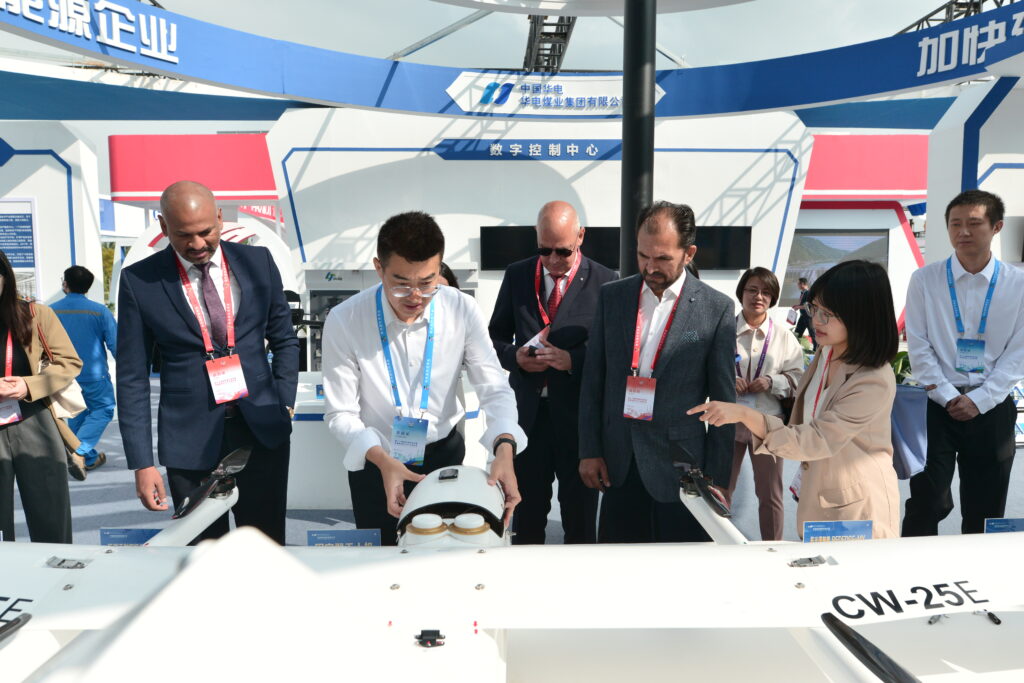BRISL visits Major Chinese State-Owned Enterprises in Energy Sector in Shaanxi Province.
Shaanxi, China — September 17, 2024 — The recent visit by the Belt & Road Initiative Sri Lanka (BRISL) delegation to key Chinese state-owned enterprises in Shaanxi Province was a significant milestone in enhancing the collaboration between Sri Lanka and China. Facilitated by Xinhua Economic Information Services, the visit, which took place from September 10 to 14, 2024, provided valuable insights into China’s advancements in energy technology and infrastructure, showcasing potential areas for cooperation and growth.
- Xi’An Shaangu Power Co.,Ltd.
The BRISL delegation explored Shaanxi Blower (Group) Co., Ltd. (ShaanGu Group) is a leading global enterprise specializing in distributed energy system solutions, with over 56 years of innovative development and a transformative focus on service-oriented manufacturing, specializing in distributed energy systems and green technologies. The company’s facilities in the Lintong manufacturing park impressed with their advanced automation and energy efficiency solutions.
In recent years, ShaanGu Group has upheld the new development concept of “innovation, coordination, green, openness and sharing”, closely followed the green development trend of “energy conservation and environmental protection”, and implemented the dual goals of carbon peaking and carbon neutrality. Through in-depth transformation, the group has proactively carried forward the philosophy of high-quality development to “find products for customers, not find customers for products”, and achieved green, low-carbon and high-quality development in persistent transformation.
The company has received numerous prestigious awards, including recognition as a top player in clean energy equipment and energy conservation practices. The delegation observed the EISS4.0 system, which represents a significant leap in optimizing energy use and supporting smart city initiatives. This visit highlighted the potential for Sri Lanka to integrate similar technologies to advance its own energy sector transformation. Shaangu Group is located in Xi’an, Shaanxi Province. It is a world-renowned system solution provider and system service provider in the field of distributed energy. Shaangu’s distributed energy system solutions and energy-saving and environmentally friendly products and system services have covered more than 100 countries and regions around the world, including Germany, Indonesia, South Korea, Turkey, India, Kazakhstan, and Zambia.


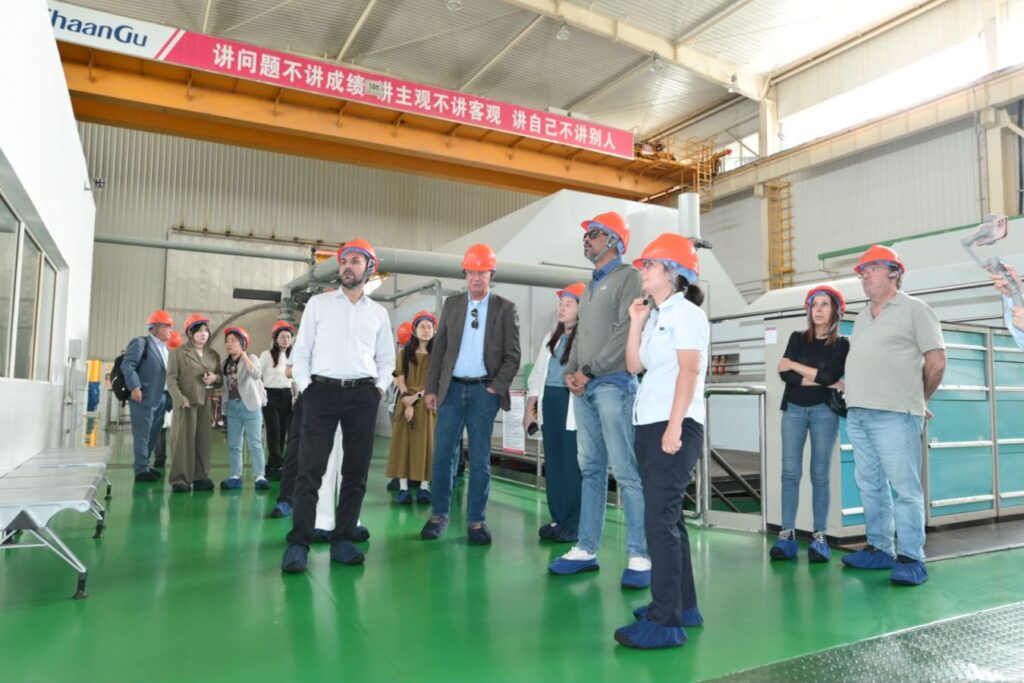
Xifeng Group.
Xifeng Group, based in Baoji, Shaanxi Province in northwest China, is a wholly state-owned enterprise with a rich history dating back to its establishment as the Shaanxi Xifeng Liquor Factory in 1956. In 2010, it transitioned into an investment holding corporation and now encompasses 13 subsidiaries, primarily focused on the production of Chinese liquor while also diversifying into sectors such as printing and packaging, logistics, trade, and cultural tourism.
The group boasts total assets of 12 billion yuan (approximately 1.69 billion U.S. dollars) and occupies around 3,000 mu (about 200 hectares) of land, employing over 8,000 individuals. Shaanxi Xifeng Liquor Co., Ltd., the group’s cornerstone entity, is the largest liquor manufacturer in northwest China, producing around 100,000 tons of liquor annually. With origins tracing back to the Shang Dynasty, Xifeng Liquor has evolved through the Tang, Song, Ming, and Qing dynasties, becoming one of China’s oldest and most esteemed liquors, recognized for its 3,000-year-old production techniques. The trademark for Xifeng Liquor has been registered in countries including the U.S., EU, Russia, Thailand, and New Zealand, with exports reaching 26 nations across four continents. In 2021, its liquor-making techniques and industrial heritage were recognized as part of China’s national intangible cultural heritage and industrial heritage. By 2023, Xifeng’s brand value reached 268.743 billion yuan (about 37.9 billion U.S. dollars), solidifying its position as a leader in the Chinese liquor market.
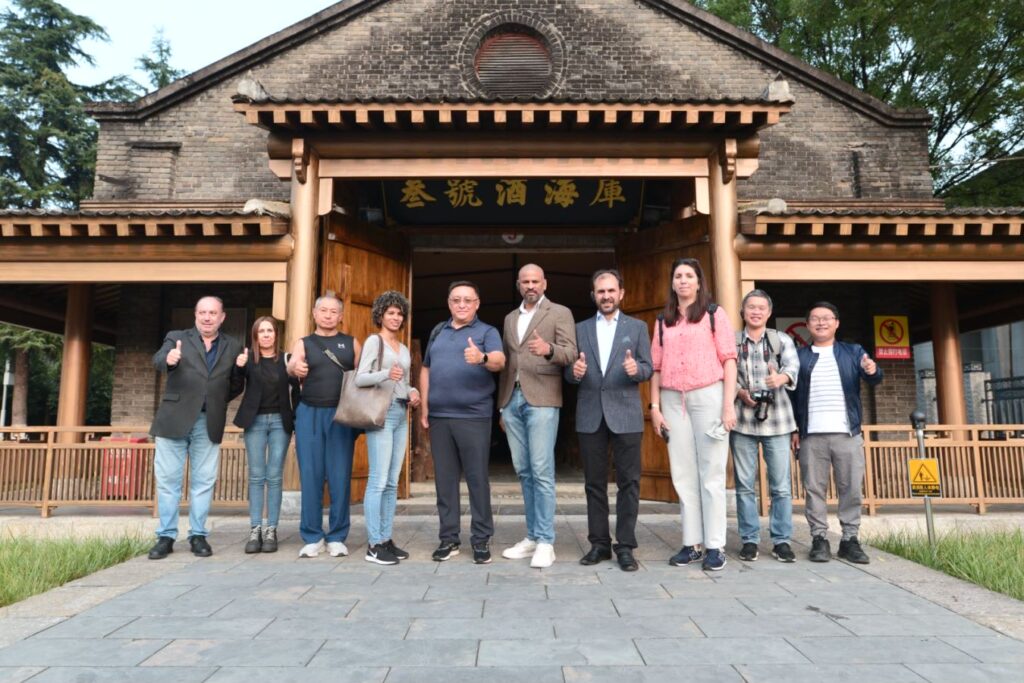
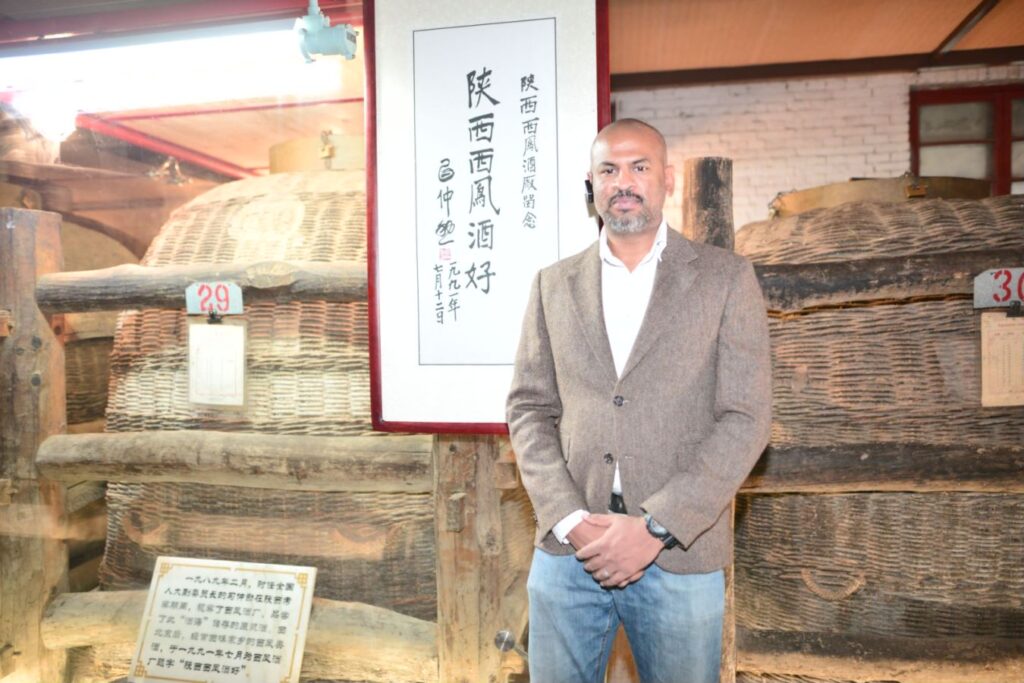
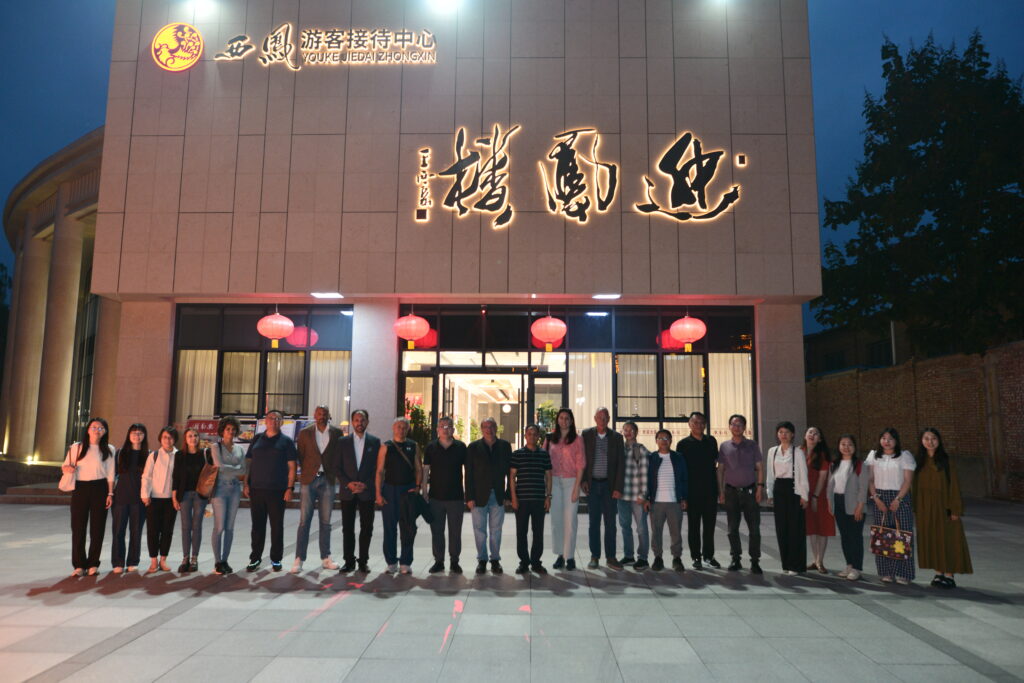
Shendong Coal Group Co., Ltd.
Shendong Coal Group Co., Ltd. (Shendong Coal), a key coal producer within CHN Energy Investment Group, began operations in 1984 and oversees the production and management of major mining sites in the coal-rich Shenfu-Dongsheng coalfield, as well as in Baode, spanning regions in Inner Mongolia, Shaanxi Province, and Shanxi Province. The company operates across a coalfield area of 1,027 km², with total resource reserves of 11.7 billion tonnes and recoverable reserves of 7.2 billion tonnes. In 2011, Shendong Coal became the first in China to establish a coal production base capable of exceeding 200 million tonnes annually.
The company specializes in coal production, washing, selection, and processing, offering high-quality products such as lump coal, ultralow ash coal, and blended coal. These products are characterized by low sulfur (≤0.5), low phosphorus (≤0.05), low ash content (≤8.5), and a calorific value of around 5,500 kcal/kg, making them vital for the power, chemical, and metallurgical sectors and contributing significantly to urban environmental protection.
Shendong Coal has achieved full mechanization in mining operations, with over 80% resource recovery rates and impressive production efficiencies of up to 150 tonnes of raw coal per worker and 1,170 tonnes per worker for direct operations, ranking among the best in the country. The company has set more than 100 records within the industry, holds 1,731 patents, and has received eight national awards for advancements in science and technology.


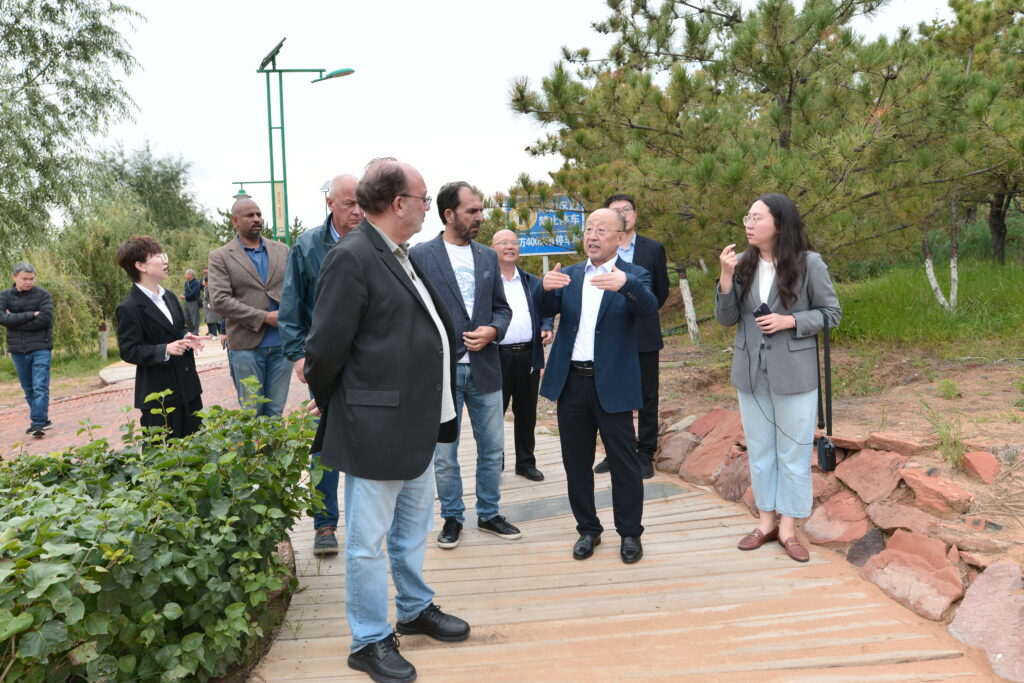
Strategic Projects in Sri Lanka and Their Importance
The BRISL visit underscored several major Chinese investments and projects that offer significant benefits to Sri Lanka:
- Hambantota Port: This strategically located port is set to enhance Sri Lanka’s maritime trade capabilities. Chinese investment is transforming it into a major international shipping hub, which is crucial for boosting trade and regional connectivity. In an era, ports are increasingly becoming efficient and competitive, its important harness the latest technologies in order to compete in international markets. Its impotent to keep an eye on Chinese advance technologies in varies areas in order to meet the market demands.
- Colombo Port City: The Colombo Port City project is creating a cutting-edge financial and business district, which will drive economic growth and attract global investments. This development reflects high standards of Chinese engineering and offers a model for sustainable urban expansion. Moreover, companies as Shaanxi Blower (Group) Co. develop varies smart city solutions and new energy solutions which can help the Colombo Port city to establish as a modern financial district in the Indian Ocean.
- Clean Energy Initiatives: The advanced clean energy technologies demonstrated during the visit are vital for Sri Lanka’s transition to renewable energy. These innovations can not only help Sri Lanka achieve its environmental goals and reduce its reliance on fossil fuels, but also it can help to meet the international commitment towards complying with the Paris Agreement targets.
- SINOPAC Oil Refinery: The upcoming SINOPAC oil refinery in Hambantota has the capacity to improve Sri Lanka’s energy security and generate regional economic opportunities. This project is a testament to the strategic partnership between Sri Lanka and China and its impact on local development. Moreover, construction of such large-scale projects as the oil refineries, could implement policy-based targets as China’s ‘Dual Carbon’ goal where China target to reach its carbon emissions peak before 2030 and become “carbon neutral” before 2060.
- Seabed Mining Technology: Discussions on seabed mining technology highlighted China’s expertise in this field, which can support Sri Lanka in the responsible and sustainable exploitation of its marine resources. Seabed exploitation is limited to only few nations because it requires advance technologies and high capital cost., China is one of the regional powers which develops such advance technologies in mining and other scientific advancements.
The recent visit by the Belt & Road Initiative Sri Lanka (BRISL) delegation to major Chinese state-owned enterprises (SOEs) in Shaanxi Province marks a pivotal moment for strengthening Sri Lanka-China relations. Chinese SOEs are at the forefront of global advancements in their respective fields, particularly in energy technology and infrastructure. This presents a unique opportunity for Sri Lanka to leverage these innovations to enhance its own economic landscape.
Notably, in recent years several Chinese SOEs established their regional headquarters in Colombo, further solidifying Sri Lanka as a strategic hub for investment and collaboration. The insights gained from leading enterprises like Shaanxi Blower (Group) Co., Ltd. demonstrate the potential for Sri Lanka to adopt cutting-edge technologies and sustainable practices, driving its energy sector transformation and supporting national goals for renewable energy.
As these partnerships develop, Sri Lanka stands to benefit significantly from increased investments, technological advancements, and knowledge transfer, ultimately enhancing its capacity for economic growth and regional connectivity. The BRISL delegation’s engagement with these pioneering companies underscores a promising path forward for collaborative initiatives that can propel Sri Lanka into a new era of development.

